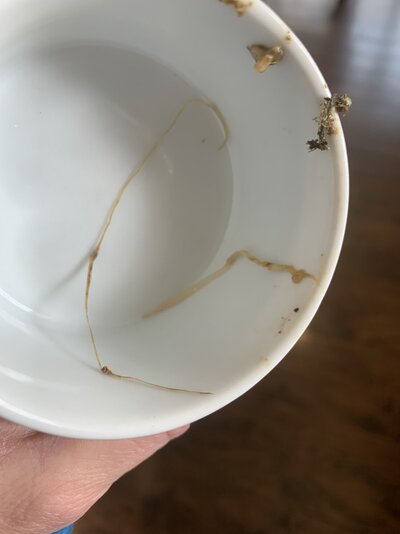notherearenttoomany
Chirping
- Jun 11, 2020
- 56
- 52
- 76
I’ve looked through several threads on here and am still uncertain what to do. I found this (pictured) hanging off a frozen poo the other day and something similar again today.
1. Are these worms?
2. What do I do about it? What wormer is best f
I’ve read that oral is best, but I’m not sure I can pull that off. I don’t handle them much and won’t have a helper. If it’s best, I’ll do it but I’d love a medication I can put in their water for simplicity.
Flock info:
12 total in my mixed flock of australorps, Easter Eggers, barred rocks and marans/silkie mix (not small tho).
1 rooster @ 10 months;
10hens @ 10 months;
1 hen, several years old
All the girls are presumably laying—I get 7-10 eggs/day
The flock ranges together on our property all day, in at night. They always have access to clean water and layer pellets from a local feed store. I occasionally give dried worms as treats, and occasional table scraps. The worms and scraps are less than once/week.
1. Are these worms?
2. What do I do about it? What wormer is best f
I’ve read that oral is best, but I’m not sure I can pull that off. I don’t handle them much and won’t have a helper. If it’s best, I’ll do it but I’d love a medication I can put in their water for simplicity.
Flock info:
12 total in my mixed flock of australorps, Easter Eggers, barred rocks and marans/silkie mix (not small tho).
1 rooster @ 10 months;
10hens @ 10 months;
1 hen, several years old
All the girls are presumably laying—I get 7-10 eggs/day
The flock ranges together on our property all day, in at night. They always have access to clean water and layer pellets from a local feed store. I occasionally give dried worms as treats, and occasional table scraps. The worms and scraps are less than once/week.





